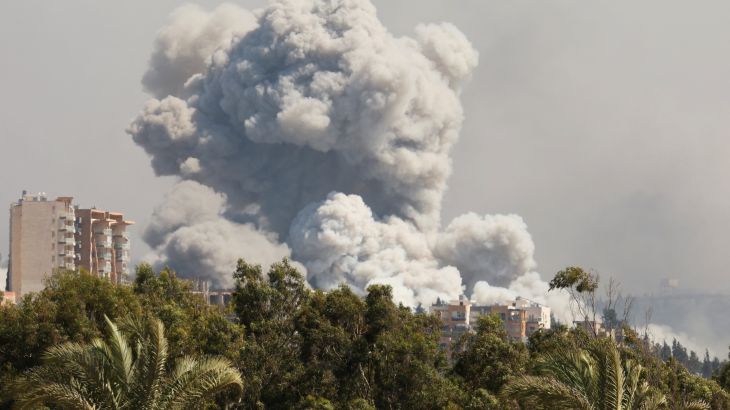
Israeli airstrikes in southern Lebanon have resulted in at least 100 fatalities and over 400 injuries, according to Lebanese health officials. The Israeli military announced on Monday that it has conducted more than 300 airstrikes targeting sites linked to Hezbollah, escalating fears of a potential all-out war between Israel and the Iran-backed group.
Lebanon’s Ministry of Public Health confirmed that among the casualties were women, children, and medical personnel. This announcement came shortly after the Israeli military urged civilians to evacuate areas believed to be used by Hezbollah, which had launched a series of rockets into northern Israel just a day prior.
The recent hostilities mark a significant increase in violence along the border, which had experienced low-level skirmishes since the onset of Israel’s conflict with Gaza in October. The situation worsened after a series of explosions last week in Lebanon that killed dozens.
In the early hours of Monday, Israeli spokesperson Daniel Hagari stated that the military had carried out “extensive strikes” on Hezbollah positions following reports of rocket fire. He noted that the Israeli government is refocusing its efforts against Hezbollah to facilitate the safe return of around 60,000 Israelis evacuated from border regions.
Israeli Defence Minister Yoav Gallant urged the public to remain calm as military operations expand. “We are intensifying our actions in Lebanon until we can ensure the safety of residents in the north,” he stated in a video released by his office.
As part of their military strategy, Israeli forces have warned civilians in southern Lebanon to evacuate areas where Hezbollah has a presence. Civilians reported receiving phone alerts from Israeli sources advising them to leave buildings used for military purposes.
In a concerning development, Lebanese media noted that residents in various regions, including Beirut, have received landline warnings to evacuate due to potential airstrikes. Lebanon’s National News Agency described these warnings as part of a “psychological war” waged by Israel.
Reporting from Beirut, an Al Jazeera correspondent highlighted the anxiety among residents about the possibility of an escalation into full-scale war between Hezbollah and Israel. The two nations are technically at war, and communication with Israel is prohibited in Lebanon.
In the south, an Al Jazeera reporter witnessed multiple airstrikes, noting that Israeli forces targeted several towns and villages, as well as areas in the Bekaa Valley. Footage from the scene showed significant smoke rising from the bombed locations.
The U.S. government expressed concern but maintained that there is still potential for a diplomatic resolution, while cautioning Israel about its methods for ensuring the safety of northern residents.
Hezbollah’s deputy chief, Naim Qassem, addressed mourners in Beirut, declaring that the group has entered a “new phase” of open-ended conflict. The escalation in violence has included recent rocket attacks by Hezbollah on Israeli military sites, marking some of the heaviest exchanges since the start of the Gaza conflict.
As tensions continue to mount, the situation remains precarious, with both sides engaging in near-daily exchanges of fire since October 8. Hezbollah has stated that it will cease hostilities only when a ceasefire is achieved in Gaza.
The backdrop of this violence includes a series of unprecedented attacks attributed to Israel, including recent explosions in Beirut that have been linked to both Hezbollah members and civilians. These attacks have further exacerbated the already volatile situation, with the conflict showing no signs of abating.
For ongoing updates, join our WhatsApp channel: https://whatsapp.com/channel/0029VabITrvEAKW7DSkTfP0J